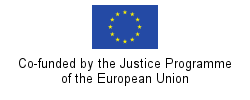
Microsite Strengthening
Introduction
As the European agenda and recent events demonstrate, the issues of radicalisation and violent extremism, which may be conducive to terrorism, have increasingly become a priority for most Member States.
However, in the midst of the rush to enact counter-terrorism legislation at national and European levels, little if any consideration has been given to the fact that some of the suspected or alleged ‘terrorists’ could be children or underage juveniles.
The way terrorist suspects are treated in general needs to be considered in relation to the particular impact it may have on suspected girls and boys under the age of 18, who are children before they are suspects. Nevertheless, children adapted policies and practices in the field of counter-terrorism do not exist in most European Union Member States (EUMS) and where they do, they are specific to each country and promising experiences are not shared between Member States.
Moreover, juvenile justice agencies and practitioners as well as social actors in many EUMS have expressed a pressing need for support to help them identify, prevent and deal with radicalisation and extreme violence in children and young adults.
In consequence, the project “Strengthening Juvenile Justice Systems in the counter-terrorism context: Capacity-building and peer-learning among stakeholders” (JUST-2015-JCOO-AG-TERR) aims to address juveniles’ unique situation and their protection under international and European law in the context of counter-terrorism.
It equally addresses the requirement and urgency for juvenile justice systems to resort to diversion, alternatives and community based measures in addition to, and where possible instead of, usual criminal justice responses in the treatment of radicalised juveniles.
Moreover, due to the special situation of vulnerability and risk of being recruited in detention, it is essential to draw special attention to children deprived of liberty. The prevention of juvenile radicalisation in detention, as well as the need to design de-radicalisation and social inclusion programmes, are also a component of this project.
The project launches in January 2017 and is expected to end approximately in December 2018.

The website section for this project was funded by the European Union’s Justice Programme (2014-2020). The contents of it are the sole responsibility of the “Strengthening Juvenile Justice Systems in the counter-terrorism context” project partners, and can in no way be taken to reflect the views of the European Commission.